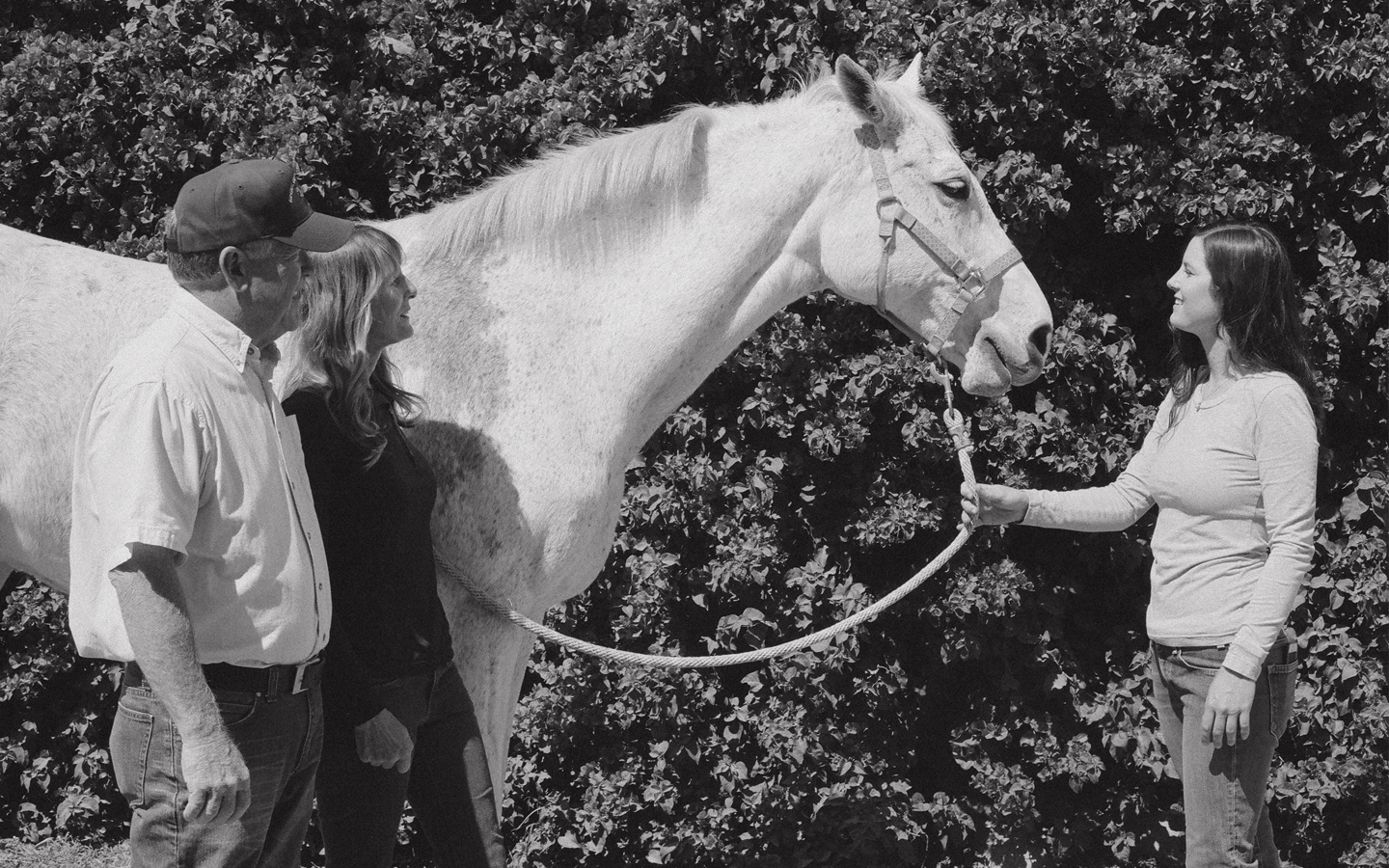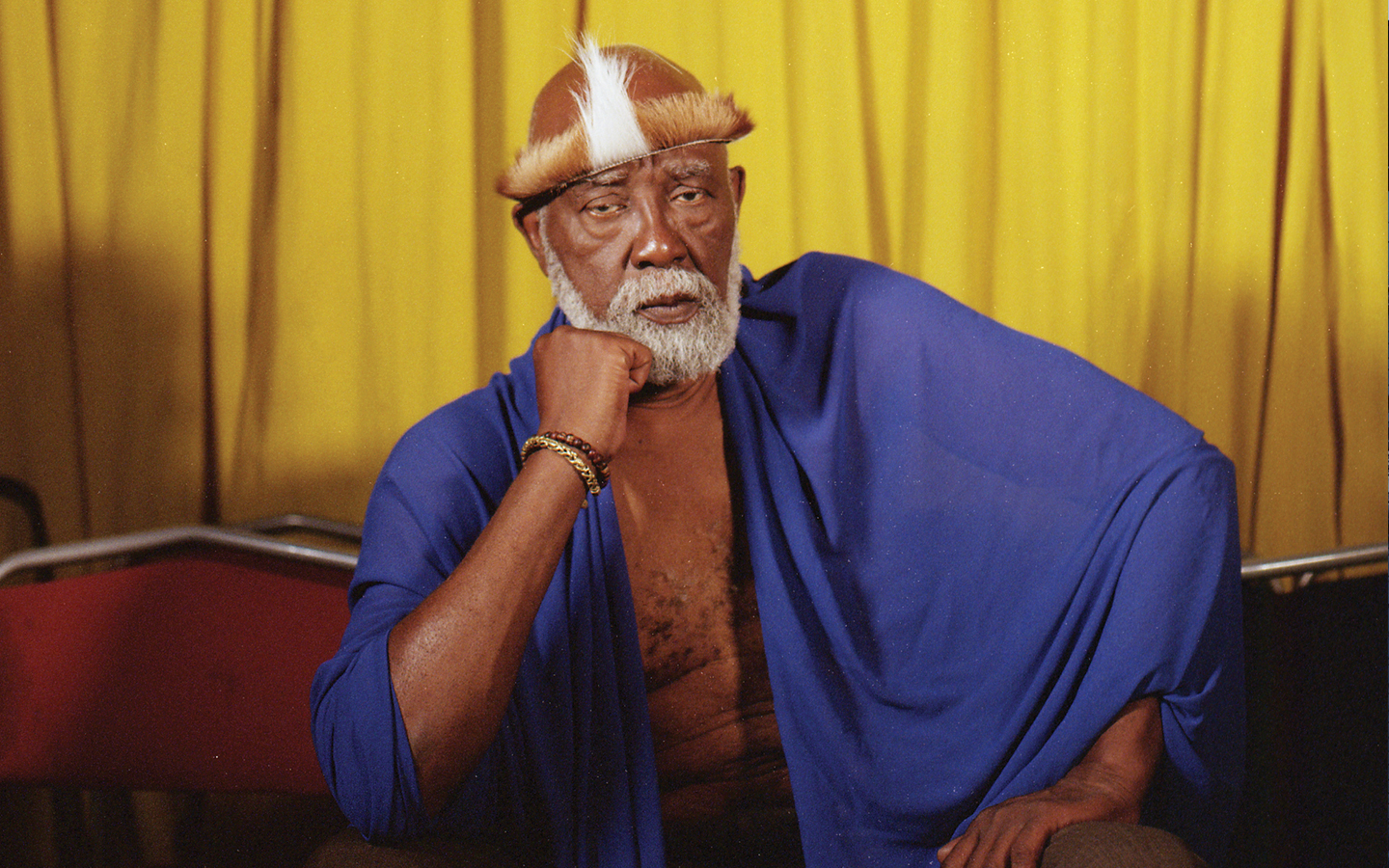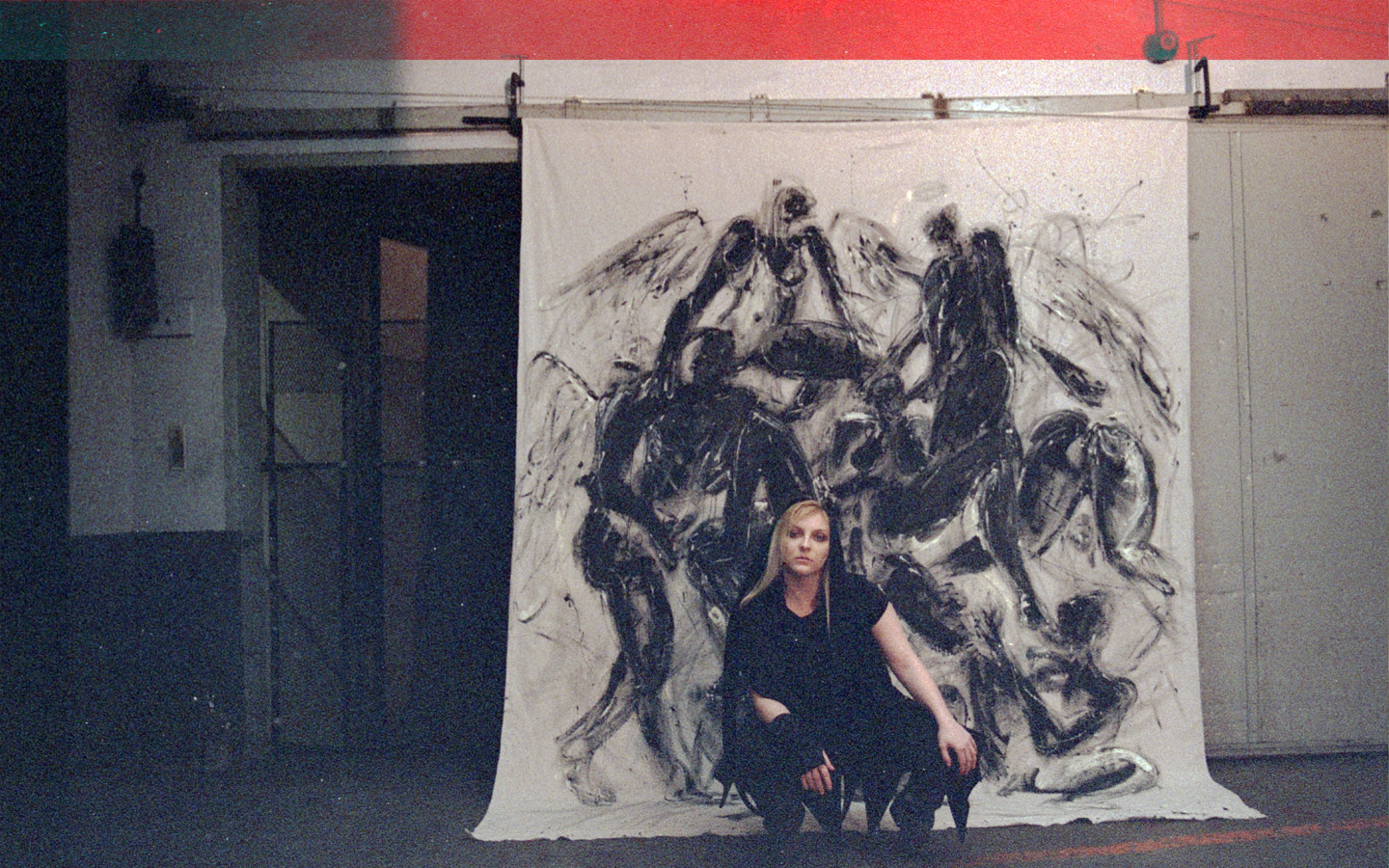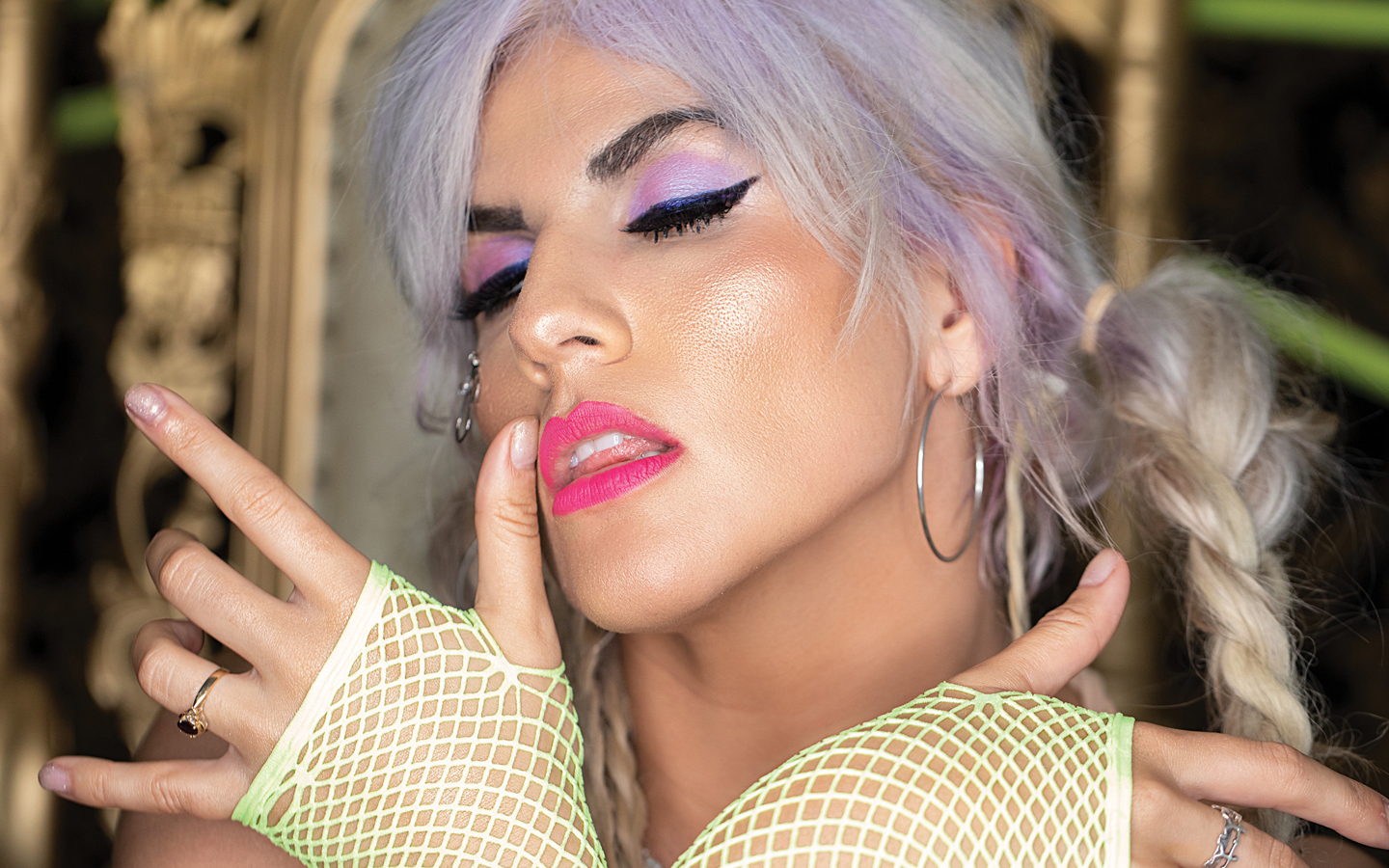
The Griffith Family of Imperial Equestrian
TEXT VIRGINIA RAND + ALEX POWERS
VISUAL NIKO SONNBERGER
Two entities with a singular purpose to move forward symbolize this establishment. “I love my job. I am in love with my job,” Shona smiled, expressing compassion and concern for those who don’t feel the same way about their careers. Joel had said the same thing about how men feel about their wives, baffled that after more than twenty years of marriage, people fall out of love. Asked about how the two met, he reflected on the early days, and his eyes shone with tears before he said a single word.
Joel took over Imperial Equestrian Center in 1991. Growing up in Arcadia, California, he’d had a fondness for horses his whole life—but they didn’t become central to his career until his early thirties. Before this, he worked as a controller for British Petroleum; prior to that, he was an accountant.
He began with horses on a smaller property in Long Beach, and soon he couldn’t help but notice that down the street, the Imperial Equestrian Center exhibited a lackluster appearance and a dwindling number of boarding horses—which suggested the then-current owners might want a way out. Being ‘real estate’ rather than ‘horse people,’ they did.
Joel bought the business and licensed the land, continuing to work for British Petroleum by night for two years as he grew the stables and clientele. Rebuilding the structures section by section, with astute attention to detail, he notes a different approach and philosophy than the real estate mind; where they broadly managed the property, he considered each individual aspect.
Goal-oriented, driven, and independent, Joel ran the establishment by himself, managing the boarding horses and starting to implement training facilities. His singularity of purpose was clearly defined as he excelled with his previous knowledge of business applied to the equestrian world; more and more clients and horses arrived, and he happily ran the place alone.
Then Shona arrived.
It was around 1995. To this day, Joel relives the recognition of this woman walking into his life with breathtaking, youthful joy.
For a long time, though, Joel kept a respectable distance. As a boarder, she was a client—as well as a prospective trainer. Shona also helped get horses off the track, retraining them to be sold via Imperial. Overstepping the line was not something Joel was willing to risk. He was cognizant to the fears and intimidation women experience in the workplace, especially when business-owners and bosses make a pass at clients or prospective staff. Sensitive to her comfort, he socialized with her only in bigger groups. As a professional business owner and a good man, he kept his feelings to himself. He waited.
It was other women in the equestrian world around them who recognized the potential for a match—including an ex-girlfriend of Joel’s and another platonic female friend, who was his then-roommate. Eventually, enough communication was safely established for Joel to comfortably consider asking her out.
One day Shona took a horse and rode down the trail, then Joel took a horse and rode down the trail, knowing it was one-way—and that she’d be coming back. Crossing paths, Shona exclaimed, “I can’t believe you’re riding a horse!” (To this day, Joel tends to run operations from the ground rather than in the saddle.)
They went for a walk together and courteously ensured they were off the property so that they were not a business owner and a client, but a man and a woman. It was then that Joel mentioned a particularly good Mexican restaurant nearby, and asked Shona if she wanted to go. She did.
“I went from the ‘I’ to the ‘we,’” Joel muses on his partnership with Shona, “and it was really good.” It was hard to not cry along with him. He proposed the following Valentine’s day, planning for a wedding the next October, then September, then late summer, then early summer. “We kept moving up the date,” he smiles. “We couldn’t wait.”
The partnership did not cease at dividing lines of marriage. Joel invited her input and collaboration; he wanted her involvement and her autonomy from the beginning. In the early days, when he overheard Shona and her mother discussing two of her horses in the care of an unpleasant ex, he wanted her to have a choice: get the trailer and bring the horses back from Kentucky, or decide it’s not worth it. “But it’s your choice,” he’d told her, clarifying that if she chose to not retrieve them that he did not want them living in the shadow of regret.
They brought the horses back. One of them eventually became the favorite of their young daughter when she began to ride. In this sort of relationship, it is no surprise that Joel and Shona praise one another at any given opportunity as they continue to work and live alongside each other.
While some stables run as distinct English, Western, trail, or dressage, Imperial Equestrian Center presents itself as “an everything stable.” Enabling freedom of autonomy to forge connection with horses is encouraged, provided it is ethical and legal. The foundation of this ethos is prevalent in their story.
In horseback riding lessons with Shona, the symbiosis in communication and connection are revealed to riders. She seems to see people more intimately than others. Alex Powers, whose profession as a stand-up comedian and model comes with constant scrutiny, sensed she was being seen more so by Shona than an audience at a comedy club. The way Shona encouraged her to tap into her body felt more akin to working under the guidance of a shaman than a riding instructor. The relationship between rider, horse, and teacher is rooted in trust and communication. “She’s doing for you, as the rider, what the horse cannot verbalize. They function as a team, but separate entities, operating in different ways,” Alex says.
Trusting horses is not personally diffcult for Alex. Big as they are, they exhibit great patience and tolerance for the people on their backs. She refects on the lesson: “If you’re not in control of yourself and your body, you’re not going to be in control of that horse. You’re not going to be able to direct that horse—which is why it takes a special kind of person and a confdent person, confdent in their good nature, to maintain a stride with someone like Shona. You have to sink into your body and into your own self-confidence; to relinquish any kind of power to let her guide you as a companion.”
Like any relationship, Alex notes the power exchange between sentient beings. Nuances of the body and emotional state are brought to surface in these equestrian rings. Within this ring is a trust, a communication, synchronicity and a relationship forged, as in that of a wedding ring.




